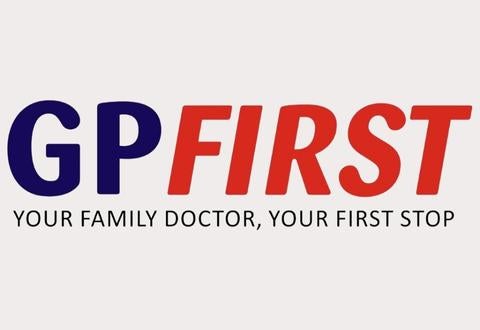Changi General Hospital will NEVER ask you to transfer money over a call. If in doubt, call the 24/7 ScamShield helpline at 1799, or visit the ScamShield website at www.scamshield.gov.sg.
Prescribing care where it counts

In critical care, the stakes are high and even the smallest detail is crucial in making every decision quickly and accurately. For CGH Specialist Pharmacist Dr Yeo Qiu Min, this means that an appropriate adjustment to medication dosage based on the patient’s medication history could help stabilise blood pressure or fight off an infection.
For nearly two decades, Qiu Min has dedicated her career to caring for some of the hospital’s most vulnerable patients — those in the hospital’s intensive care (ICU) and high dependency (HD) wards. Her role may not always be apparent, but her expertise is critical in ensuring that medications are safe, effective, and tailored to each patient’s condition.
“These patients are very ill and often have little reserves,” she explains. “The medicines we use can be lifesaving, so there’s no room for error.”
Specialising in critical care was not part of Qiu Min’s plan when she joined CGH in 2007 after graduation. It was only in 2011, when she was pursuing her doctorate in pharmacy on a CGH scholarship, that her exposure to the role of pharmacy in critical care sparked a new passion.
“Critical care is complex but deeply rewarding,” she says. “I find myself energized, and it was clear to me that this was where I could make the most impact.”
Qiu Min shares on her role as a Specialist Pharmacist in the critical care wards at CGH.
What sets critical care pharmacy apart is the precision it demands. Qiu Min plays a pivotal role in the multidisciplinary team that includes doctors and nurses, discussing treatment plans and providing recommendations on pharmacotherapy during daily ward rounds.
“Medications and dosages are not one-size-fits-all. They vary depending on factors such as the patient’s weight, kidney function, vital signs, or even drug compatibility – how the medications interact when delivered simultaneously through multiple infusion lines – a key consideration as patients may require multiple intravenous medications.
“Being prompt and prepared is crucial,” Qiu Min notes. “We have to know our patients well enough to make meaningful contributions on the spot.”
Qiu Min is an integral part of the CGH multidisciplinary team, ensuring safe and personalised medication care.
But while her work is rooted in science, it is also infused with empathy. In reviewing patients’ medications, Qiu Min looks beyond the clinical aspects to also consider the patient’s circumstances and condition. This can range from speaking with patients and families - sometimes in dialect, sometimes with pen and paper - to help them understand their medications, to switching the form of medication to a syrup if the patient has difficulty swallowing tablets – to ensure the medicine can effectively treat the condition.
“Specialised care and personal touch go hand in hand,” she says. “It’s about making our expertise meaningful to the people we serve.”
Her advice to younger pharmacists considering the specialty of critical care pharmacy?
“Build strong clinical foundations, join the rounds, and ask questions. Asking questions helps uncover the real concerns - and that’s how we grow.”
Beyond the hospital campus, Qiu Min’s life is anchored by family and small joys - watching travel and food documentaries, listening to audiobooks, and parenting her four-year-old. Parenthood, she says, has taught her to embrace imperfection and find balance.
Looking ahead, Qiu Min sees technology and sustainability shaping the future of healthcare. From AI-driven decision support in the ICU to ground-up eco-initiatives among colleagues, she believes in combining innovation with responsibility.
“Healthcare is demanding, but we also need to renew ourselves and care for our environment,” she reflects.
At the heart of her work is a simple conviction that what she does makes a difference.

“To know that I can contribute to my patients’ recovery gives me purpose,” she says. “And that purpose keeps me striving to be a better version of myself, every day.”
Stay Healthy With
© 2025 SingHealth Group. All Rights Reserved.


















